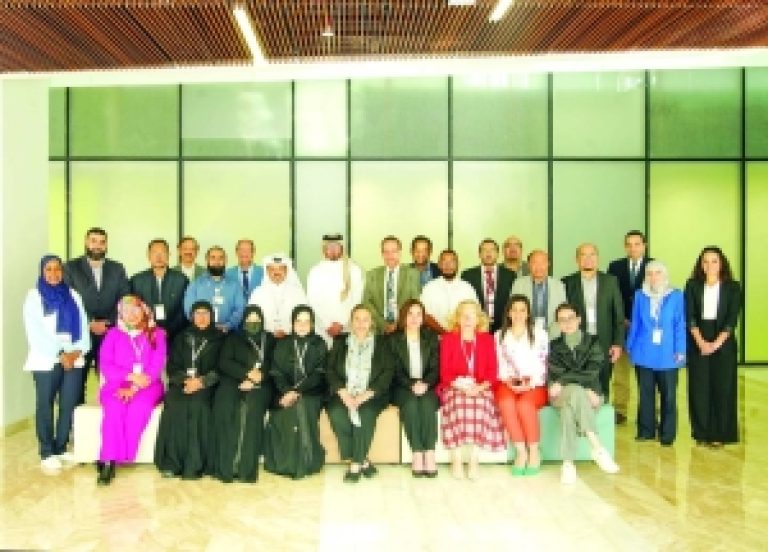In partnership with the World Health Organization’s (WHO) Regional Office for the Eastern Mediterranean, the Ministry of Public Health (MoPH) has created an advanced occupational and environmental medicine program. The initiative is one of the results of the Second National Health Strategy’s occupational health goals.
As part of the Occupational Health and Safety (OHS) Initiative, a priority under the National Health Strategy 2024-2030, a work plan has been developed to implement the advanced program, according to MoPH.
To identify trainees, focusing on occupational medicine, family medicine, and community medicine specialists and consultants, a scientific committee was established, consisting of MoPH employees, a WHO representative, and an expert from the WHO Regional Office for the Eastern Mediterranean.
In the WHO Eastern Mediterranean Region, this advanced occupational and environmental medicine program is the first of its type.
In light of this, the WHO Regional Office for the Eastern Mediterranean and the WHO Country Office in Qatar recently partnered with the MoPH to host a training workshop for trainers on the advanced occupational and environmental medicine program.
The event was a component of Qatar’s national occupational health capacity building agenda. The advanced occupational and environmental medicine curriculum was created by the Ministry’s Occupational Health Section in collaboration with the WHO to give medical professionals the knowledge and abilities needed to recognize and treat occupational illnesses and injuries as well as to perform occupational and environmental exposure assessments.
Through experience sharing among participants from various work situations, the program sought to refresh knowledge and skills in occupational and environmental medicine. It addressed professional practices in preventative and therapeutic occupational and environmental medicine, standardized the knowledge of occupational health and safety concepts, and evaluated and clarified concepts like occupational diseases and work-related illnesses. It also noted difficulties in implementing these procedures nationally.
Acting Director of the Health Promotion Department at MoPH, Dr. Salah Alyafei, welcomed WHO representatives and commended the cooperation between the Ministry, the WHO Country Office in Qatar, and the WHO Regional Office for the Eastern Mediterranean in accomplishing the Qatar National Vision 2030 in his opening remarks at the workshop.
He emphasized that the Ministry’s dedication to enhancing workers’ health and well-being is reflected in this training, pointing out that worker health directly supports sustainable development and the expansion and growth of the national economy.
Dr. Rayana Bou Haka, WHO Representative in Qatar, responded by emphasizing the value of the training workshop in accomplishing one of the goals that the WHO and MoPH share, which is to implement programs that improve knowledge and skills for addressing and preventing workplace risks across a variety of sectors. Lessons learned from the Covid-19 pandemic, she said, highlighted the necessity of enhancing response strategies to safeguard employees.
Dr. Rola Imam, the WHO Regional Office for the Eastern Mediterranean’s Occupational Health Officer, praised Qatar for spearheading the training of trainers in the advanced occupational and environmental medicine program’s implementation.
“The workshop was part of the action plan for building the capacity of health practitioners, which includes various training phases to enhance knowledge in occupational and environmental medicine among primary healthcare physicians and other specialists, thus supporting and improving occupational health practices and service delivery,” said Dr. Mohammed Ali al-Hajjaj, head of the MoPH’s Occupational Health Section.



